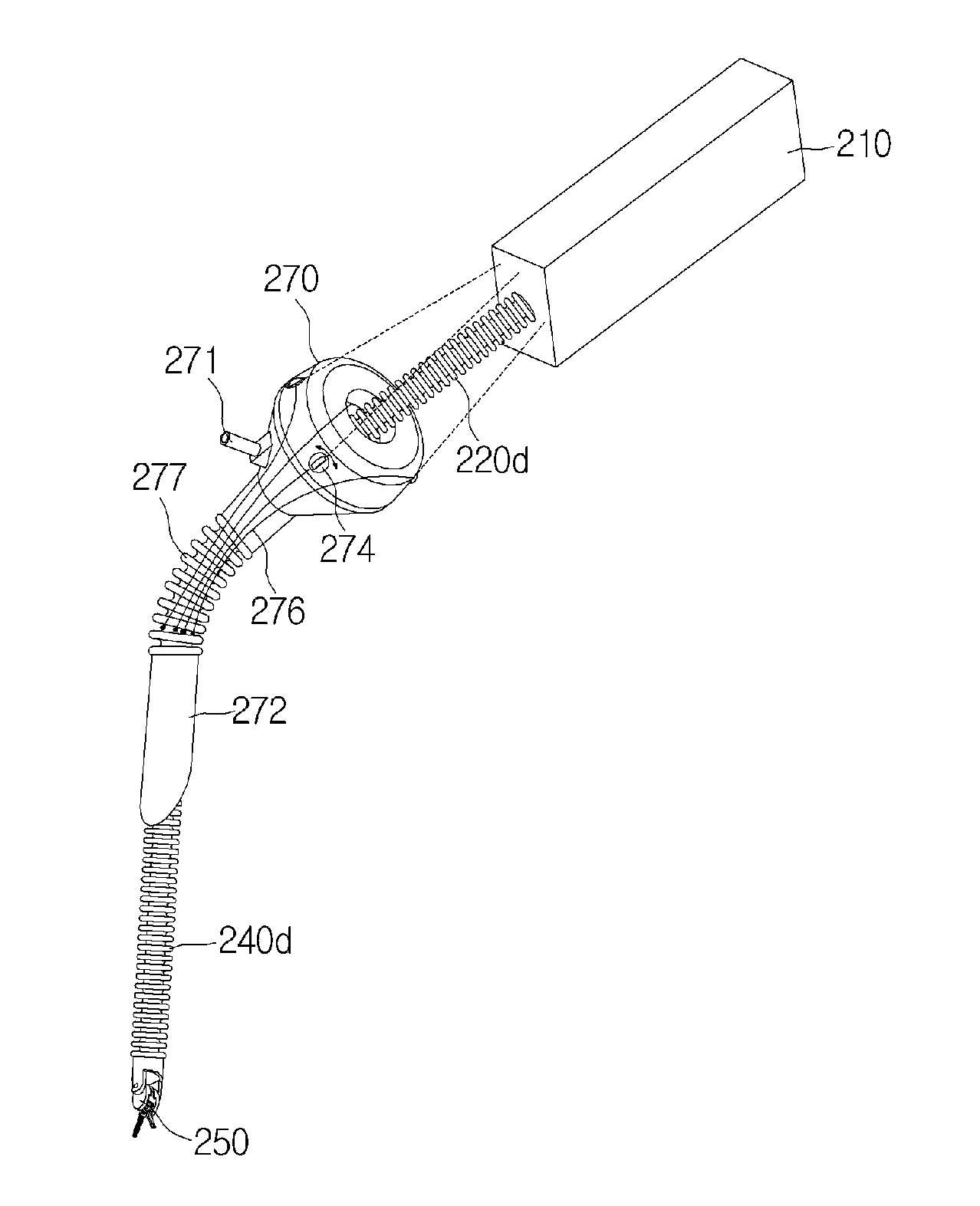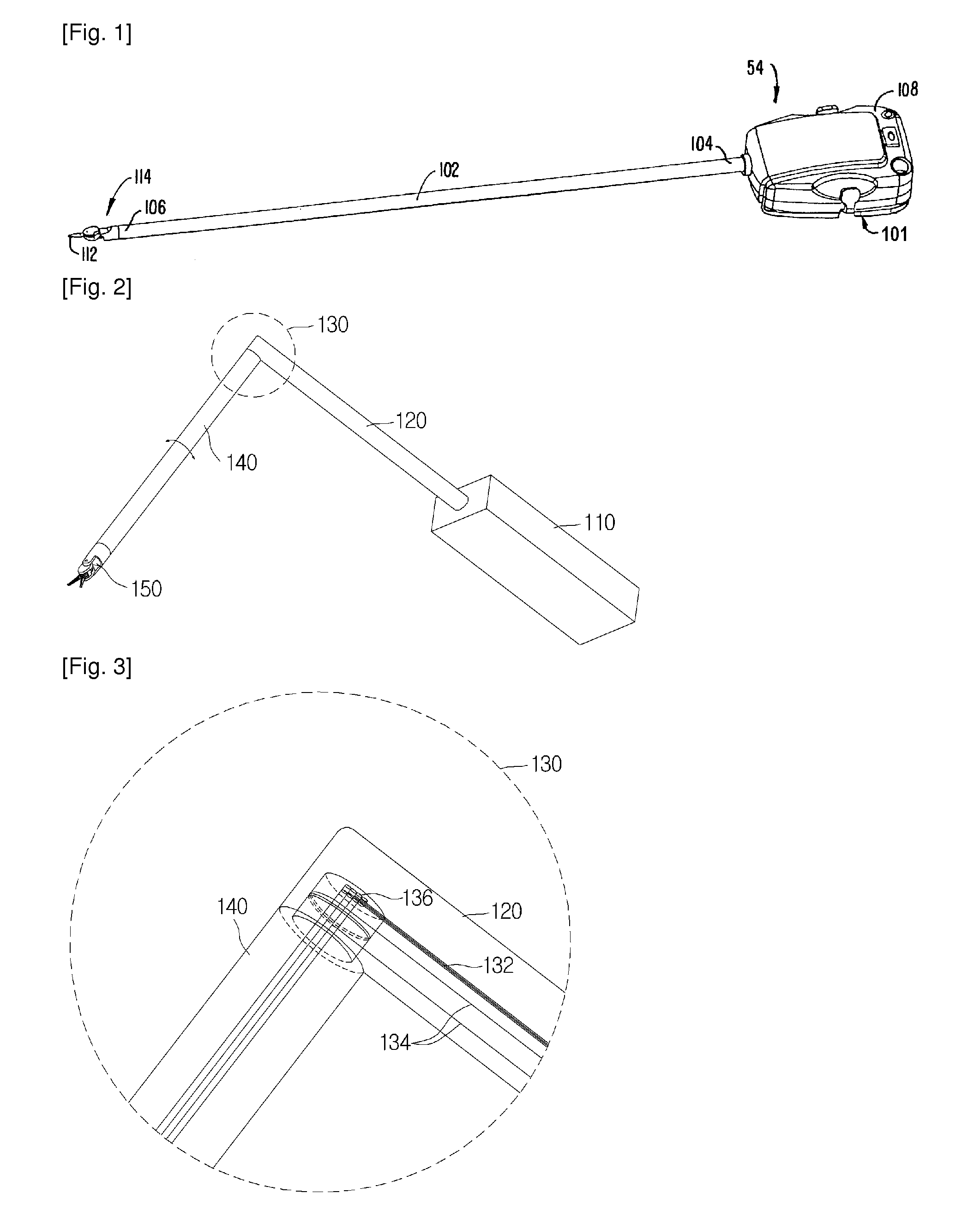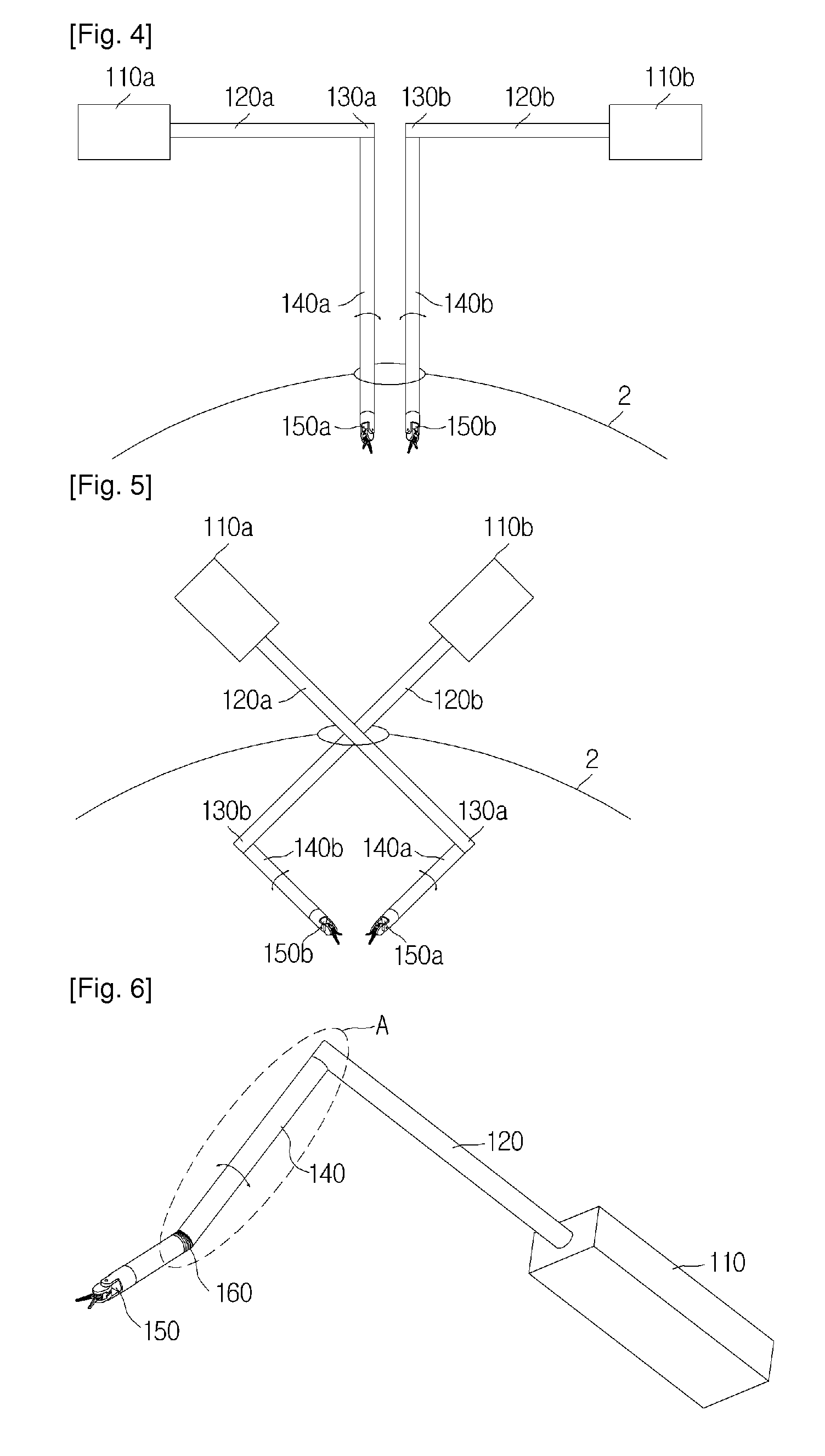Surgical instrument
a surgical instrument and surgical technology, applied in the field of medical devices, can solve the problems of scars, inability to provide the desired level of freedom in microsurgical or spa surgery procedures, and inability to meet the needs of surgical procedures in which only one incision is made, so as to achieve the effect of minimizing the diameter of the instrument and effective mode of “minimally invasive surgery”
- Summary
- Abstract
- Description
- Claims
- Application Information
AI Technical Summary
Benefits of technology
Problems solved by technology
Method used
Image
Examples
Embodiment Construction
As the present invention allows for various changes and numerous embodiments, particular embodiments will be illustrated in the drawings and described in detail in the written description. However, this is not intended to limit the present invention to particular modes of practice, and it is to be appreciated that all changes, equivalents, and substitutes that do not depart from the spirit and technical scope of the present invention are encompassed in the present invention.
While terms including ordinal numbers, such as “first” and “second,” etc., may be used to describe various components, such components are not limited to the above terms. The above terms are used only to distinguish one component from another. For example, a first component can be referred to as a second component without departing from the scope of claims of the present invention, and likewise, a second component can be referred to as a first component. If a component is said to be “connected to” or “accessing” ...
PUM
 Login to View More
Login to View More Abstract
Description
Claims
Application Information
 Login to View More
Login to View More - R&D
- Intellectual Property
- Life Sciences
- Materials
- Tech Scout
- Unparalleled Data Quality
- Higher Quality Content
- 60% Fewer Hallucinations
Browse by: Latest US Patents, China's latest patents, Technical Efficacy Thesaurus, Application Domain, Technology Topic, Popular Technical Reports.
© 2025 PatSnap. All rights reserved.Legal|Privacy policy|Modern Slavery Act Transparency Statement|Sitemap|About US| Contact US: help@patsnap.com



